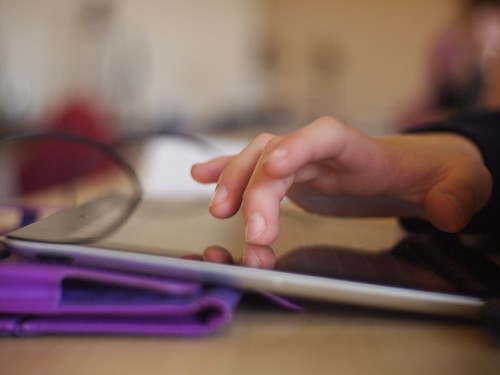Here is an interesting case study of how a small school has successfully introduced BYOD with a particular group of pupils.
 Student iPad School, by Brad Flickinger http://www.flickr.com/photos/56155476@N08/Finborough School is an independent, ie private, all-through school, ie age range 2-18, in a rural English setting. It has 274 pupils.
Student iPad School, by Brad Flickinger http://www.flickr.com/photos/56155476@N08/Finborough School is an independent, ie private, all-through school, ie age range 2-18, in a rural English setting. It has 274 pupils.
Although the school places itself firmly in the “paper-based” category, it has implemented a partial BYOD scheme. Students with special learning needs have been asked to bring in their own laptops, and for a number of ICT lessons they have been asked to bring camera phones / iPods & cameras to shoot videos.
The two reasons for adopting a BYOD approach are firstly that students tend to take more care over equipment if it belongs to them, and secondly for the usual budgetary reason.
The main benefits of this approach so far have been that students generally don't have to share devices, and it has facilitated better writing by students with special educational needs.
Since the policy was implemented, nearly all teachers have taken advantage of it when they have wanted their class to make videos or take photographs.
The biggest challenges have been forgetfulness, ie students forgetting to bring their device in, and the practicalities of transferring files from students’ devices to a PC.
James Abela, Head of ICT & Economics, advises schools going down a similar route to invest in good virus protection.
One thing James points out is that being a small school it is easy to talk to staff and tell them when students will be bringing in their own devices, and what they will be using them for. Another example, perhaps of the observation that small is beautiful!
Fuller details on the school can be found at: http://www.finboroughschool.co.uk
